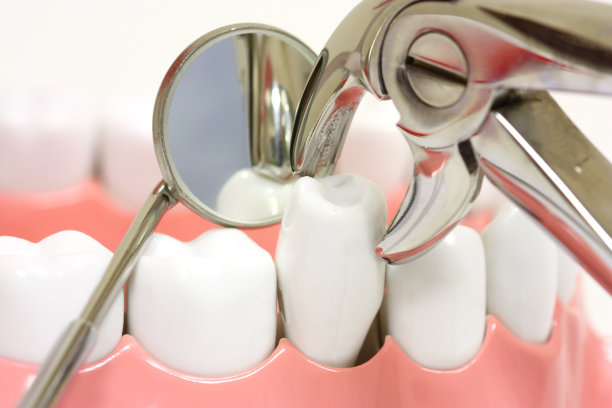Summary: Dental implants have become a popular solution for replacing lost teeth, providing a durable and aesthetically pleasing alternative. However, to ensure a safe and successful procedure, patients must follow essential guidelines throughout the dental implant process. This article outlines four critical areas: selecting the right dental professional, ensuring proper aftercare, understanding the cost implications, and maintaining good oral hygiene. Each aspect will highlight best practices, common pitfalls to avoid, and the importance of patient education for optimal outcomes. By adhering to these guidelines, individuals can significantly improve their chances of having a successful dental implant procedure, resulting in a functional and confident smile.
1. Choosing the Right Dental Professional

The first step in achieving a successful dental implant procedure is selecting an experienced and reputable dental professional. Look for a dentist or oral surgeon who specializes in dental implants, as they will have the training and expertise necessary to perform the procedure safely and effectively. Consider their qualifications, certifications, and experience, as these factors play a vital role in the overall success of your treatment.
In addition to qualifications, it is equally important to evaluate the dentists clinic and staff. Check if the facility is equipped with modern technology and offers a comfortable atmosphere. A well-organized clinic can enhance your confidence in the procedure and support a positive experience during recovery.
Don’t hesitate to seek recommendations from friends and family or read reviews from previous patients. Consultations can also help you gauge how well the dental professional communicates, clarifying any doubts you may have regarding the procedure and post-surgery care.
2. Post-Procedure Care and Recovery
After undergoing dental implant surgery, proper post-operative care is vital for quick recovery and successful integration of the implant. Patients should rigorously follow their dentist’s aftercare instructions, which may include advice on diet, physical activity, and oral hygiene routines.
Initially, a soft food diet is recommended to avoid stress on the implant site. Foods like yogurt, smoothies, and mashed potatoes can help prevent irritation while promoting healing. Its also imperative to avoid smoking and consuming alcohol during the recovery period, as these can impede healing and raise the risk of complications.
Regular follow-up appointments are crucial to monitor the healing process. During these visits, the dentist can assess the implants integration with the jawbone and ensure that there are no signs of infection or complications. Communicating any unexpected symptoms, such as prolonged pain or swelling, is vital for timely intervention if necessary.
3. Understanding the Costs and Financial Planning
Understanding the financial aspects of dental implants is an essential guideline for potential patients. The cost of dental implants can vary significantly based on several factors, including the location of the dental practice, the complexity of the procedure, and the materials used for the implants.
Prior to the procedure, discuss all potential costs with your dental professional, including consultations, surgical fees, and any additional treatments that may be necessary, such as bone grafts or sinus lifts. Some clinics may offer payment plans or financing options to help manage expenses, making dental implants more accessible to a wider range of patients.
Inquire about your dental insurance coverage as well. Although many insurance plans may not cover dental implants fully, some may provide partial coverage or cover related procedures. Understanding your benefits can help you budget more effectively and ensure that your investment yields the best results.
4. Importance of Good Oral Hygiene
Good oral hygiene is fundamental for maintaining the longevity of dental implants. After the placement of implants, patients are urged to adhere to a meticulous oral care routine to prevent infections and ensure the healing process stays on track. This should include brushing at least twice a day and flossing daily.
Regular dental check-ups should continue after receiving dental implants to monitor oral health. The dentist will evaluate the implants condition and provide a professional cleaning, which is important for maintaining the surrounding gums and preventing periodontal disease, which can compromise the implant.
Additionally, patients should be aware of any changes in their oral health. Symptoms such as gum swelling or changes in bite alignment may indicate issues that require prompt dental intervention. Staying vigilant and proactive can help ensure the extended success of dental implants.
Summary:
In conclusion, adhering to essential guidelines during the dental implant process is pivotal for achieving a safe and successful outcome. From selecting the right dental professional and following post-operative care instructions to understanding the financial implications and maintaining rigorous oral hygiene practices, each step plays a crucial role in the success of dental implants.
Investing time and effort into these aspects can lead to a transformative smile that enhances both functionality and self-confidence.
This article is compiled by Vickong Dental and the content is for reference only.
Vickong Dental
Vickong Dental is a large medical group established in Hong Kong in 2008 by professors from well-known medical universities in Guangdong and Hong Kong, as well as medical doctors from key national '985' universities (including Master's supervisors and senior professors). The chain of branches brings together expert dentists with PhDs and Master's degrees from Hong Kong and Mainland China, committed to providing high-quality dental treatment.
"Vickong Dental Practices the University Motto of 'Healing and Serving Society,' with a Stable Operation for Sixteen Years. It Has Been honored with Hong Kong Enterprise Leaders's Choice,' and is a Global Trusted Implant Center for the Nobel Implant System. Recommended by Hong Kong Metro Broadcast and Guangdong Television, it Serves Customers from Over Thirty Countries and Regions, Gaining the Trust and Favor of Citizens from the Guangdong-Hong Kong-Macau Greater Bay Area and Surrounding Cities.

Thousands of customers' unanimous praise
The most recognized and highly recommended dental service by customers in the Guangdong-Hong Kong-Macau Greater Bay Area
We Ensure You Receive Detailed Care and Attention Here
Hong Kong standards, Shenzhen prices, Your Trusted English-speaking dentists

Vickong Dental Medical-Grade Instrument Disinfection Process
Vickong Dental Medical-Grade Instrument Disinfection Process

Vickong Dental Chain: A Warm and Comfortable Environment for Treatment






Appointment Hours

Q&A
Why choose Vickong Dental?
Vickong Dental practices the university motto 「Medicine to Benefit Society」, with each branch bringing together highly qualified dentists with doctoral and master’s degrees from Hong Kong and the Mainland, and has maintained seventeen years of steady operation。Recipient of 「2024 Hong Kong Enterprise Leaders Brand」, 「2025 Hong Kong Enterprise Leaders Brand」, a Nobel Biocare Global Trusted Implant Center, and a brand recommended by Metro Radio Hong Kong and Guangdong TV。
To date, we have served customers from more than thirty countries and regions,earning exceptionally high word-of-mouth recognition and trusted recommendations from residents across the Guangdong-Hong Kong-Macao Greater Bay Area and surrounding cities
We have eight major branches in Zhuhai、Shenzhen,and a consultation and service assurance center in Hong Kong,so you can book a free consultation at any time for any questions,which is very reassuring.
If I do not accept the quotation after the CT scan, will I be charged??
No! As long as the actual treatment has not started, you will not be charged any fees.
Will there be any additional charges during the treatment process?
No, there won’t be any additional charges. Before treatment begins, we will clearly explain the treatment plan and its corresponding fees. Only after the patient agrees and signs the consent form will we proceed with the dental service.
Can I pay in Hong Kong dollars?
Yes. Vickong Dental accepts payment in Hong Kong dollars. The amount will be converted based on the exchange rate of the day, and the applicable rate will be clearly communicated to you in advance.
Can I reschedule my appointment at any time?
Yes. Please contact us via **WeChat** or **WhatsApp** as early as possible, providing your original appointment time and details, along with your preferred new date and time slot for rescheduling.













